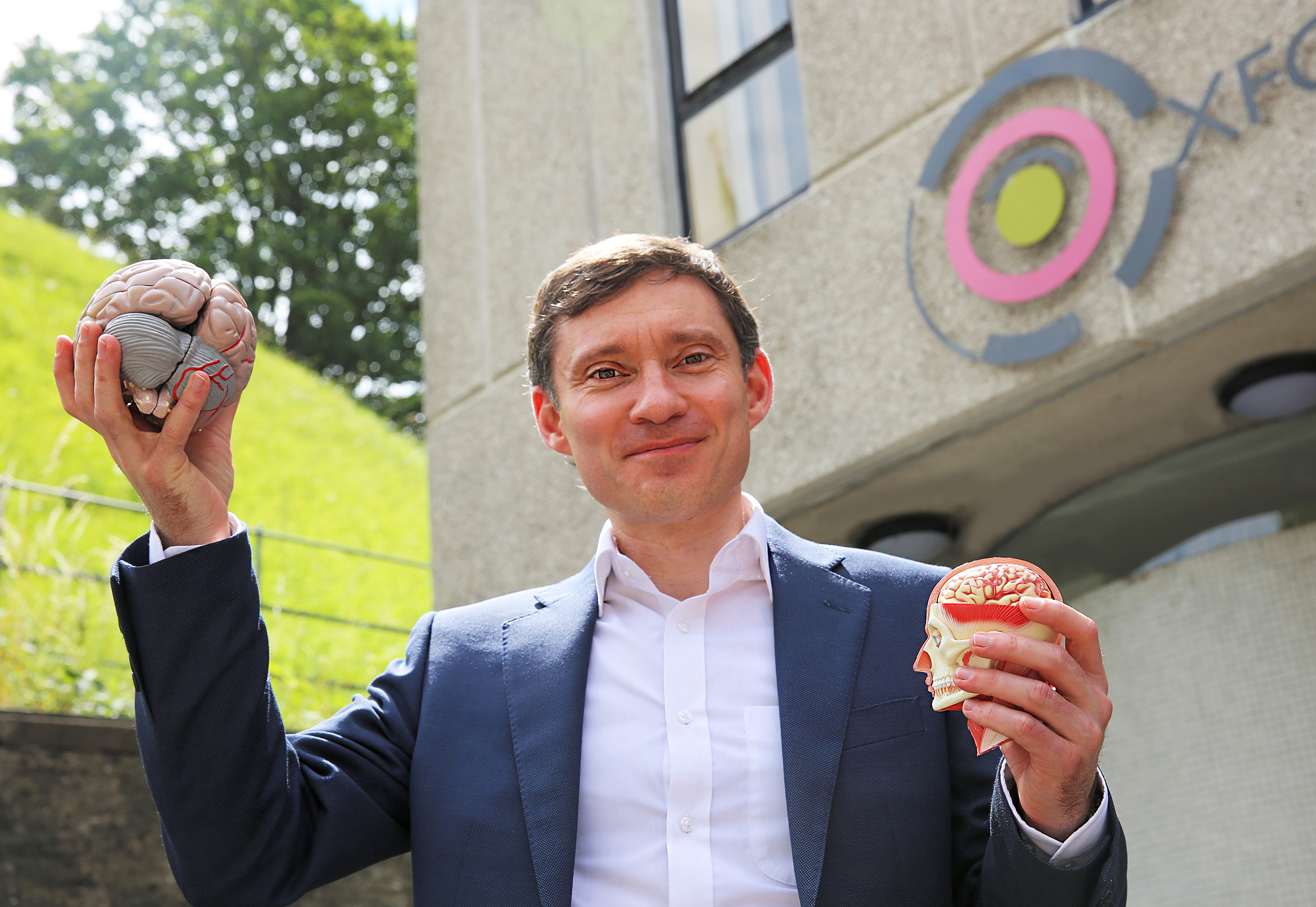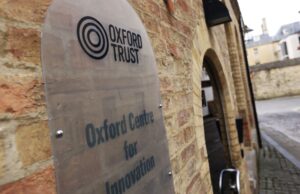Five minutes with Steven Chance at Oxford Brain Diagnostics
August 12, 2019

There are 850,000 people with dementia in the UK, with numbers set to rise to over 1 million by 2025. This will soar to 2 million by 2051. Oxford Brain Diagnostics (OBD) – the latest company to take up residence at OCFI – is looking to improve early detection of Alzheimer’s, a chronic neurodegenerative disease and the most common form of dementia.
Headed up by CEO Dr Steven Chance (Neuropathology), and Co-Founder Professor Mark Jenkinson (Neuroimaging), OBD has developed unique algorithms to measure the cellular health of a patient’s brain circuits from MRI data. Basically, their software detects particular changes that are correlated with pathology in the cerebral cortex – that’s the grey matter to you and me – of the brain. The patented technology, called Cortical Disarray Measurement or CDM, has the goal to detect dementia early on, guide effective treatment, and measure the progression of the disease.
At the moment, OBD has made great progress in developing the technology but, says Steven, “we need to get the regulatory approvals in place from the FDA in the US and the EMA in Europe to be able to take the product to our core market”. So, they will work with pharma companies in the interim to support and accelerate effective drug development in clinical trials. “It is a gamechanger for the drug discovery process”, says Steven, “as it enables faster, cheaper and more accurate testing, and allows researchers to better qualify how experimental drugs can affect the microstructure of the brain”.
Steven spent more than 20 years working in the Nuffield Department of Clinical Neurosciences at the University of Oxford, before making the leap to create Oxford Brain Diagnostics Ltd., an official University spin-out, with the help of Oxford University Innovation. Eight years ago, Steven teamed up with Mark – a leader in brain imaging at the Wellcome Centre for Integrative Neuroimaging – the “WIN” – at the John Radcliffe Hospital – and, after seven years of research and two patents, Oxford Brain Diagnostics was formed.
CDM as a technology has the potential to address other neurological disorders. As OBD grows, the team plan to launch their services in conditions like MS and Epilepsy. Their small team of six is driven by working for a start-up but also by the impact their technology might have. Not only could it save millions for the Health Service but it could also prevent suffering for many individuals and their families. Alzheimer’s can be devastating as it results in memory loss and can include problems with language, disorientation, mood swings, loss of motivation, not managing self-care, and behavioural issues.
Their knowledge of what Steven calls “brain health” could even lead to personalised medicine for neurological and psychiatric conditions. Currently their technology is hospital focused but, says Steven, “wouldn’t it be amazing if the results of a cost effective, non-invasive test could be accessed via the cloud so that doctors could detect the early signs of dementia in surgeries all over the world”.
The OBD team love being based at OCFI with the support we offer and to be part of a community of like-minded start-ups. We like having them under our roof. Good luck over the next year, OBD!
For more information on Oxford Brain Diagnostics, go to:-
https://www.oxfordbraindiagnostics.com



